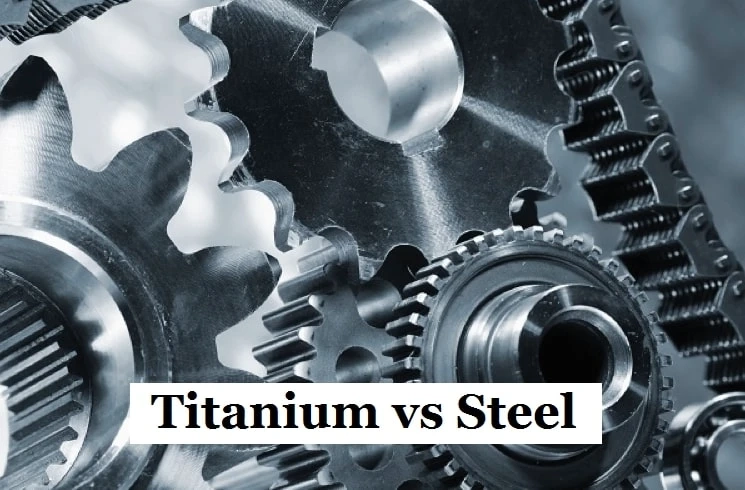When it comes to creating products, the choice of material is crucial for ensuring durability, strength, and quality. Among the popular materials used in manufacturing are titanium and stainless steel. Both materials have unique properties that make them suitable for various applications. In this article, we will compare titanium vs stainless steel and help you determine which material is the better choice for your products.
Choosing between titanium and stainless steel can be challenging, especially when you are not familiar with the properties and characteristics of each material. In this article, we will provide a detailed comparison of these materials, covering aspects such as strength, durability, corrosion resistance, biocompatibility, cost, and appearance. By understanding these factors, you can make an informed decision about which material to use for your product.
Properties of Titanium and Stainless Steel:
Titanium: Titanium is a lightweight and strong metal that is highly resistant to corrosion, making it ideal for use in harsh environments. It has a high strength-to-weight ratio, making it perfect for applications where weight is a critical factor. It is also non-magnetic and has excellent biocompatibility, making it a popular choice for medical implants.Stainless Steel: Stainless steel is an alloy of iron, carbon, and other elements, with the addition of chromium to prevent corrosion. It is a strong and durable material that is resistant to rust, staining, and corrosion. It also has an excellent heat resistance and is easy to clean, making it ideal for use in the food industry.Comparison of Titanium and Stainless Steel:
Strength and Durability: Both titanium and stainless steel are strong and durable materials, but titanium is stronger than stainless steel. Titanium has a high strength-to-weight ratio, which means it is stronger than steel but lighter in weight. Stainless steel is heavier and not as strong as titanium.Corrosion Resistance: Titanium is highly resistant to corrosion, making it ideal for use in harsh environments. It is also resistant to saltwater, making it suitable for marine applications. Stainless steel is also resistant to corrosion, but not as much as titanium.Biocompatibility: Titanium is biocompatible and is used in medical implants such as hip replacements, dental implants, and heart valves. Stainless steel is also biocompatible but is not as widely used in medical implants as titanium.Cost: Titanium is more expensive than stainless steel due to its rarity and difficulty in processing. Stainless steel is less expensive and readily available, making it a popular choice for many applications.Appearance: Titanium has a unique appearance, with a brushed silver color that is often used in high-end products. Stainless steel has a shiny appearance that is commonly used in everyday products.Applications of Titanium and Stainless Steel:
Titanium Applications: Due to its unique properties, titanium is commonly used in the aerospace, marine, and medical industries. It is used to create aircraft parts, engine components, propellers, and marine equipment due to its high strength-to-weight ratio and resistance to corrosion. In the medical industry, it is used to create implants such as hip replacements, dental implants, and pacemakers.Stainless Steel Applications: Stainless steel is commonly used in the food industry due to its resistance to staining, rusting, and corrosion. It is used to create utensils, cookware, and equipment such as sinks, counters, and refrigerators. It is also used in the automotive industry to create exhaust systems, mufflers, and body parts due to its durability and strength.Which is the Better Choice for Your Products?
Choosing the right material for your products depends on several factors, such as the product's intended use, budget, and required properties. If you need a material that is strong, lightweight, and resistant to corrosion, then titanium is the better choice. If you are looking for a material that is durable, easy to clean, and readily available, then stainless steel is the better option. If you are unsure which material to choose, it is best to consult with a professional or expert in the field. They can help you determine which material is best suited for your product and ensure that it meets your requirements.
Conclusion
Both titanium and stainless steel have unique properties that make them suitable for different applications. Titanium is stronger, lighter, and more resistant to corrosion than stainless steel, making it a popular choice for use in harsh environments and medical implants. Stainless steel is less expensive, readily available, and easy to clean, making it a popular choice for everyday products. Ultimately, the choice between titanium and stainless steel depends on the specific application and requirements of the product.
when choosing between titanium and stainless steel, it is essential to consider factors such as strength, corrosion resistance, biocompatibility, cost, and appearance. By carefully considering these factors, you can select the right material that meets the requirements of your product and ensures its durability and quality.
For more information please: Click here


